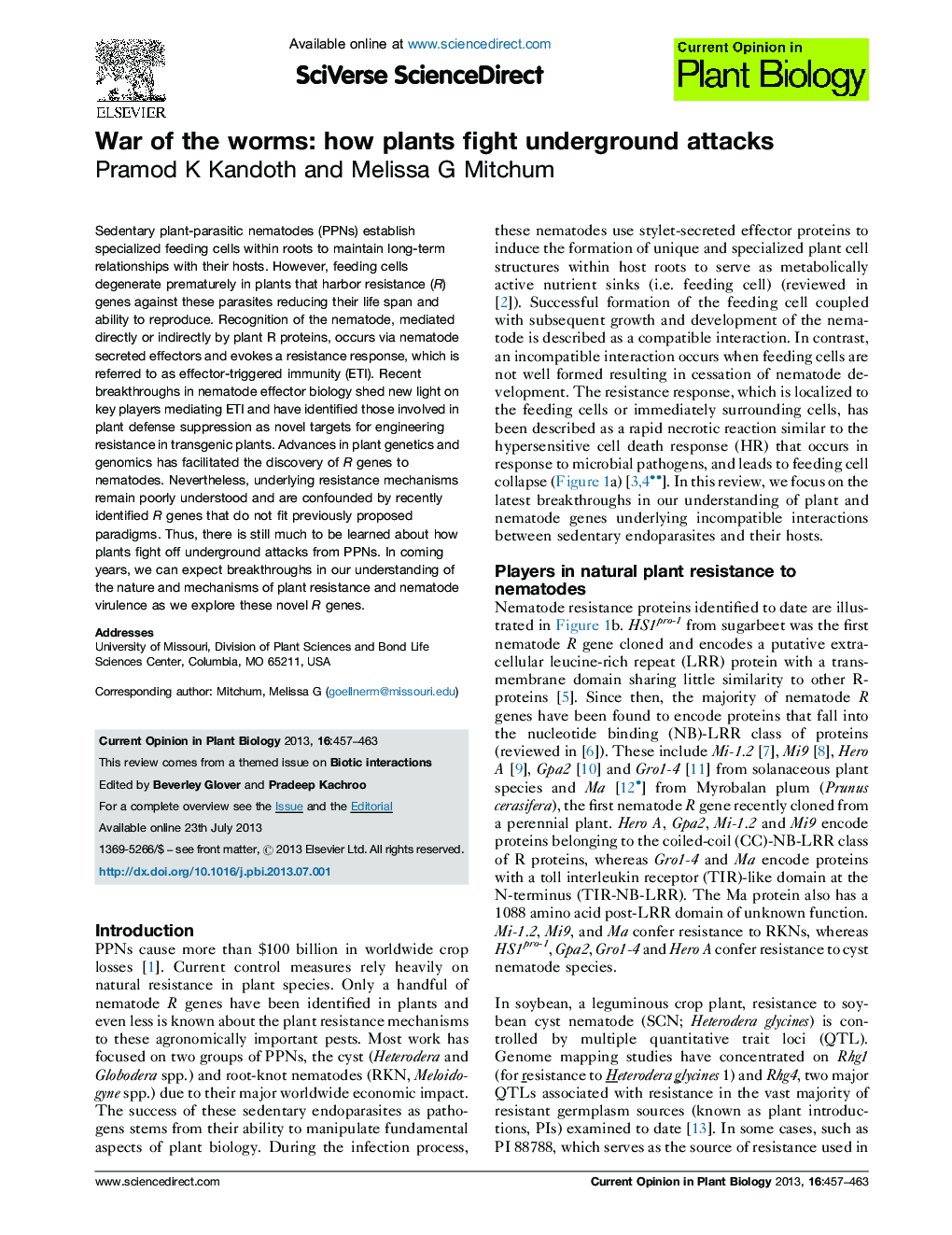| Article ID | Journal | Published Year | Pages | File Type |
|---|---|---|---|---|
| 10869412 | Current Opinion in Plant Biology | 2013 | 7 Pages |
Abstract
Sedentary plant-parasitic nematodes (PPNs) establish specialized feeding cells within roots to maintain long-term relationships with their hosts. However, feeding cells degenerate prematurely in plants that harbor resistance (R) genes against these parasites reducing their life span and ability to reproduce. Recognition of the nematode, mediated directly or indirectly by plant R proteins, occurs via nematode secreted effectors and evokes a resistance response, which is referred to as effector-triggered immunity (ETI). Recent breakthroughs in nematode effector biology shed new light on key players mediating ETI and have identified those involved in plant defense suppression as novel targets for engineering resistance in transgenic plants. Advances in plant genetics and genomics has facilitated the discovery of R genes to nematodes. Nevertheless, underlying resistance mechanisms remain poorly understood and are confounded by recently identified R genes that do not fit previously proposed paradigms. Thus, there is still much to be learned about how plants fight off underground attacks from PPNs. In coming years, we can expect breakthroughs in our understanding of the nature and mechanisms of plant resistance and nematode virulence as we explore these novel R genes.
Related Topics
Life Sciences
Agricultural and Biological Sciences
Plant Science
Authors
Pramod K Kandoth, Melissa G Mitchum,
